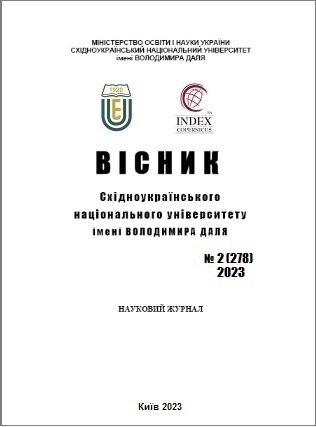Transformation of population migration in the conditions of globalization: status and trends
DOI:
https://doi.org/10.33216/1998-7927-2023-278-2-19-23Keywords:
migration flow, labor migration, labor resources, intellectual potential, migration processAbstract
The presented work examines the main trends in the transformation of migration processes and their impact on the formation and development of social relations. Thus, in the course of the research, it is proven that globalization expands the sphere of migration influence, involving more and more countries in this phenomenon. Even countries that were not previously significant destinations or countries of origin of migration are now becoming active participants in migration processes. This creates new challenges and opportunities for migration management by national and international organizations.
Also, globalization has an impact on the demographic structure of countries, in particular on the change in the ratio between the young and old population, the birth rate and death rate. Migration can change the size and composition of a country's population, with important social and economic consequences.
The main research methods are analysis and synthesis to present the main research results, deduction and induction methods to identify the main transformational processes that have an impact on migration flows.
The purpose of the presented research is to identify the main transformational trends taking place in modern conditions of globalization and related to the migration process and its transformation.
The following can be considered the main results of the study:
The volume of population migration is constantly increasing. This is due to various factors such as geopolitical changes, socio-economic inequalities, conflicts and crisis situations. Both international and internal migration within countries is increasing.
Migration directions are also changing. Qualitative changes in the economic, political and social context can lead to a change in the preferred countries of migration. Such changes may be caused by changes in labor market conditions, the availability of new opportunities for education and training, or the presence of social ties with a certain country.
Migrant groups are becoming more and more diverse in terms of ethnicity, occupation, level of education, and social status. This is reflected in the diversity of motivations and needs of migrants, and also affects their integration into new social environments.
References
1. Engbersen G., Snel E., Boom J. “A Van Full of Poles”: Liquid Migration from Central and Eastern Europe. A Continent Moving West? EU Enlargement and Labour Migration from Central and Eastern Europe. Black R., Engbersen G., Okólski M., Panţîru C., eds. Amsterdam, Amsterdam University Press, 2010, рр. 115-140.
2. International Migration Report 2017. UN, 2017 (ST/ESA/SER.A/403). 30 р.
3. Panchenko V., Reznikova N., Bulatova O. Regulatory Competition in the Digital Economy: New Forms of Protectionism. International Economic Policy. 2020. № 1-2 (32-33). Р. 49-79
4. World Migration Report 2018. Geneva, IOM, 2017. 347 p.
5. Зима О.Г., Афанасьєва О.М., Родіонов С.О., Кошарна в.В., Станкова А. Трансформації глобальної міграції населення. ВІСНИК СХІДНОУКРАЇНСЬКОГО НАЦІОНАЛЬНОГО УНІВЕРСИТЕТУ імені Володимира Даля № 1 (257) 2020. С.27-31
6. Офіційний сайт Державної служби статистики України. URL: http://ukrstat.gov.ua.
7. Офіційний сайт Статистичної служби Європейського Союзу. URL: http://ec.europa.eu/eurostat
8. Панченко В. Г., Резнікова Н. В., Іващенко О. А. Розвиток industry 4.0 й цифрової економіки у фокусі глобального технологічного та інноваційного суперництва КНР і США. Економіка та держава. 2021. № 2. С. 4–10.
9. Птащенко О. В. Міграційні потоки: сучасні тенденції соціальної напруги / О. В. Птащенко // Міжнародна економіка в умовах кліматичних змін: пандемічний та пост пандемічний період: зб. тез допов. міжнар. наук.-практ. конф. студентів та молодих вчених, 11 квіт. 2022 р.: тези допов. – Тернопіль, 2022. – С. 21-22.
10. Резнікова Н.В. Міжнародні економічні відносини в епоху глобалізації: історико-теоретичні аспекти сучасних світогосподарських зв’язків. Економіка України. 2020. № 12. С. 77—80.
11. Резнікова Н.В., Іващенко О.А., Курбала Н.В. Ідентифікаційні характеристики розвинених країн у мандатах міжнародних організацій: ознаки передової економіки у фокусі дослідження. Економіка та держава. 2020. № 9. С. 17–24.

